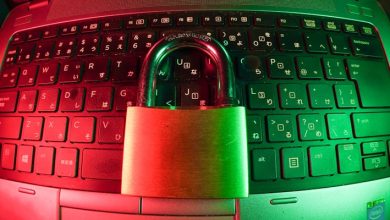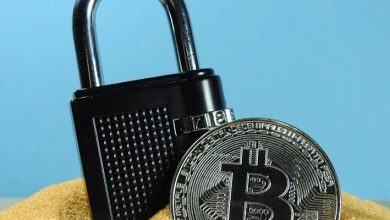Keeping Your Private Keys Secure: Do’s and Don’ts

- Understanding the Importance of Private Keys
- The Basics of Private Key Security
- Best Practices for Safeguarding Your Private Keys
- Common Mistakes to Avoid with Private Keys
- Protecting Your Assets: Private Key Security
- Tips for Ensuring the Safety of Your Private Keys
Understanding the Importance of Private Keys
Private keys are a crucial component in the world of cryptocurrency and blockchain technology. These keys act as a form of digital signature, allowing users to securely access their funds and make transactions on the blockchain. Understanding the importance of private keys is essential for anyone looking to keep their assets safe and secure.
Private keys are essentially a secret code that allows you to access and manage your cryptocurrency holdings. Without your private key, you will not be able to access your funds or make any transactions. This means that keeping your private key secure is of the utmost importance to protect your assets from theft or unauthorized access.
When it comes to storing your private keys, there are a few best practices to keep in mind. It is recommended to store your private keys offline, such as on a hardware wallet, rather than keeping them online where they may be vulnerable to hacking. Additionally, it is important to never share your private key with anyone else, as this could lead to unauthorized access to your funds.
By understanding the importance of private keys and following best practices for storing and securing them, you can help ensure that your cryptocurrency holdings remain safe and secure. Remember, your private key is the key to accessing your funds, so it is essential to keep it protected at all times.
The Basics of Private Key Security
When it comes to private key security, it is crucial to follow certain best practices to ensure that your sensitive information remains safe from unauthorized access. Here are some basic guidelines to help you keep your private keys secure:
- Store your private keys in a secure location, such as a hardware wallet or encrypted USB drive, to prevent unauthorized access.
- Avoid sharing your private keys with anyone else, as this can increase the risk of theft or fraud.
- Use strong passwords to protect your private keys from being compromised by hackers or other malicious actors.
- Regularly backup your private keys and store them in multiple secure locations to prevent loss in case of hardware failure or other unforeseen events.
- Consider using a secure password manager to help you keep track of your private keys and other sensitive information.
By following these basic guidelines, you can help ensure that your private keys remain secure and protected from unauthorized access, helping to safeguard your digital assets and personal information.
Best Practices for Safeguarding Your Private Keys
When it comes to safeguarding your private keys, there are several best practices you should follow to ensure the security of your sensitive information. Private keys are crucial for accessing and controlling your digital assets, so it’s essential to keep them secure at all times.
- Never share your private keys with anyone, including friends, family, or strangers.
- Use a secure password manager to store and manage your private keys securely.
- Enable two-factor authentication (2FA) wherever possible to add an extra layer of security to your accounts.
- Regularly backup your private keys and store them in a secure location, such as a safe deposit box or encrypted USB drive.
- Avoid storing your private keys on any online platform or in an email, as these can be vulnerable to hacking.
- Be cautious of phishing scams and always verify the authenticity of websites before entering your private keys.
- Consider using a hardware wallet for an added level of security when managing your private keys.
- Keep your devices and software up to date to protect against potential security vulnerabilities that could compromise your private keys.
By following these best practices, you can help ensure that your private keys remain secure and protected from unauthorized access. Remember, the security of your private keys is paramount in safeguarding your digital assets and maintaining control over your online accounts.
Common Mistakes to Avoid with Private Keys
When it comes to keeping your private keys secure, there are several common mistakes that you should avoid at all costs. One of the most important things to remember is to never share your private keys with anyone, no matter how trustworthy they may seem. Your private keys are essentially the keys to your digital assets, so keeping them confidential is crucial.
Another mistake to avoid is storing your private keys on your computer or any other internet-connected device. If your device gets hacked, your private keys could be compromised. Instead, consider storing your private keys offline in a secure location, such as a hardware wallet or a piece of paper stored in a safe place.
It’s also important to avoid using weak passwords or passphrases to protect your private keys. Make sure to use a strong, unique password that includes a combination of letters, numbers, and special characters. Additionally, be wary of phishing attacks that could trick you into revealing your private keys.
Lastly, make sure to regularly back up your private keys in case of loss or theft. Losing access to your private keys could mean losing access to your digital assets forever, so it’s important to have a backup plan in place.
Protecting Your Assets: Private Key Security
When it comes to protecting your assets in the digital world, private key security is paramount. Your private key is essentially the key to your kingdom, allowing you to access and manage your cryptocurrency holdings. Therefore, it is crucial to keep your private key secure at all times to prevent unauthorized access and potential loss of your assets.
There are several do’s and don’ts when it comes to private key security. First and foremost, do store your private key offline in a secure location. This could be a hardware wallet, a piece of paper stored in a safe, or even encrypted and stored on a USB drive. By keeping your private key offline, you are minimizing the risk of it being hacked or stolen by cybercriminals.
On the other hand, don’t store your private key online or on devices that are connected to the internet. This includes storing it in email accounts, cloud storage services, or on your computer or smartphone. These are prime targets for hackers, who can easily gain access to your private key if it is stored online.
Another important do is to create backups of your private key. If you lose access to your private key, you could potentially lose access to your assets forever. By creating backups and storing them in multiple secure locations, you can ensure that you always have access to your private key, even if one backup is lost or compromised.
Lastly, do regularly update your security measures and stay informed about the latest security threats and best practices. The world of cybersecurity is constantly evolving, and it is important to stay one step ahead of cybercriminals to protect your assets effectively.
Tips for Ensuring the Safety of Your Private Keys
When it comes to ensuring the safety of your private keys, there are several steps you can take to minimize the risk of unauthorized access. Here are some tips to help you keep your private keys secure:
- Store your private keys in a secure location, such as a hardware wallet or encrypted USB drive, rather than keeping them on your computer or mobile device.
- Avoid sharing your private keys with anyone, as this can increase the likelihood of them falling into the wrong hands.
- Use strong passwords to protect your private keys, and consider using a password manager to help you keep track of them.
- Regularly back up your private keys to ensure that you can still access your funds even if you lose your primary storage device.
- Be cautious when entering your private keys online, as phishing scams and malware attacks can compromise your security.
By following these tips, you can help protect your private keys and keep your cryptocurrency investments safe from potential threats.



